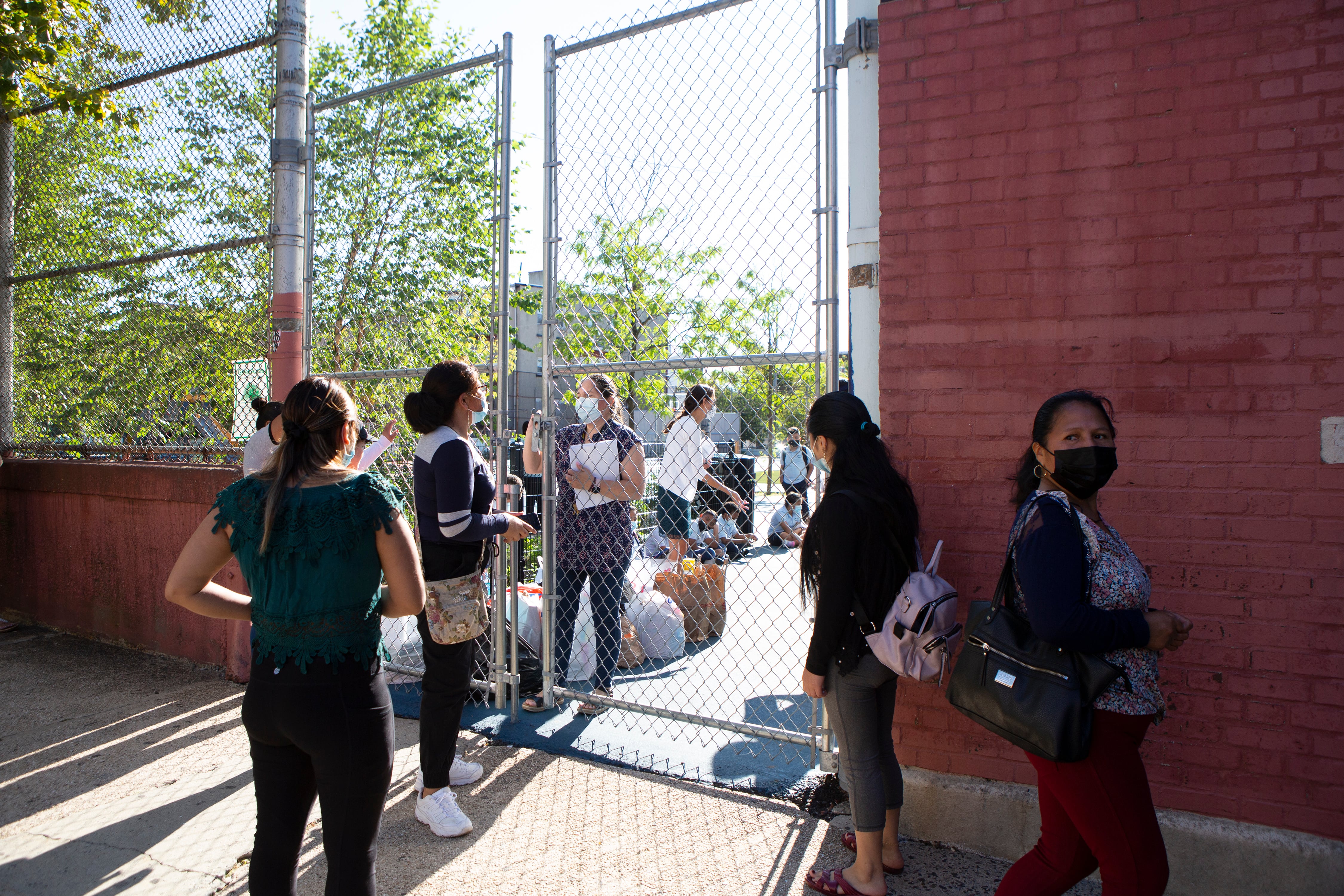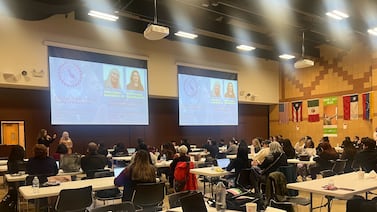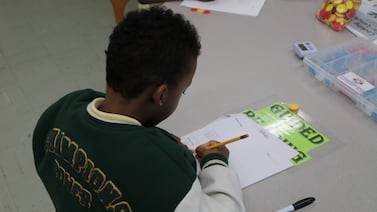Damaris Rodriguez reads everything she can get her hands on about education. She’s a PTA secretary. And she sees herself as a fierce advocate for her children, particularly her son, who is on the autism spectrum.
Yet Rodriguez, who lives in the Bronx, hasn’t been able to weigh on one of the most important decisions facing her children’s school system: how to spend its coronavirus relief money.
She would love to give her opinion about the air conditioners she wants fixed and counselors she wants hired. So far, Rodriguez says, no one has asked.
“Why is it that you make the parents feel like they’re not part of it?” she said.
Though many districts have launched surveys or held town hall meetings, just one in five public school parents said they recall being asked by their child’s school how to spend the new money, according to a recent nationwide poll.
It’s not too late, though. While a portion of this new funding has been spent, much of it — probably most — is still available. Plans can be revised. And public input, in this case, is required by the U.S. Department of Education.
“Schools are the site for democracy building,” said Domingo Morel, a political scientist at Rutgers University. “People need to be participating in all forms of policy that affect them.”
Here are some ideas for how to do it well.
Actively seek out ideas and feedback
Getting a wide cross-section of a community to tell you what they think takes work. But that outreach is a prerequisite to making sure the feedback districts get is useful, since the loudest voices and most-willing participants don’t always represent the majority.
“If the school district wants to ensure that they’re talking to all the people, much like when we do the Census, you have to do the work of actually knocking on the doors and getting people who wouldn’t ordinarily come out, to come out,” said Sally Nuamah, a Northwestern University researcher who studies public participation in schools. “It’s about commitment and investment.”
That could mean advertising opportunities to offer feedback in many ways and in multiple languages, working with community groups, and offering translation services and child care at meetings.
Rely on schools and teachers, not district offices
It’s usually school district officials, rather than school principals or teachers, who are in charge of spending federal money and soliciting input. But families are less closely connected to central offices than to their local schools.
That means it often makes sense for district leaders to enlist school staff to encourage families to fill out surveys or attend focus groups.
Offer conversation, not monologues
In a recent study, Brown University researcher Jonathan Collins found that parents were more likely to say they would attend a school board meeting if the flyer promised an “open dialogue.” In another study, Collins found that respondents would be more likely to attend after viewing a video clip in which board members directly responded to public comments, rather than a clip where members passively listened.
The lesson: make sure board meetings, town halls, or focus groups involve real dialogue — and that that opportunity is prominently advertised.
Allow for virtual participation
During the pandemic, many school districts turned to virtual meetings — and continuing to offer them could be a tool to boost participation going forward. The convenience and accessibility of virtual meetings can allow those otherwise unable to participate a chance to do so.
“The best way right now is Zoom,” said Rodriguez.
Design surveys and meetings to get helpful feedback
Surveys and focus groups have to be designed carefully to be useful.
One recent national survey shows why. It gave parents a dozen options — ranging from expanding internet access to hiring more guidance counselors — for how to use new federal money and asked them to say whether each was a high or low priority. The problem: Most parents deemed nearly every idea a high priority.
That leaves school officials with little actual guidance. Surveys that aren’t specific enough can lead to the same problem, telling officials that parents want more extracurricular activities, for instance, but not which ones.
Ask families to choose
One way to get more useful feedback is with what school finance analyst Marguerite Roza has dubbed the “would you rather” test.
Instead of asking parents whether they want schools to spend money on computers or counselors, the question should compare specific options of equal cost. So a survey might offer a choice between buying a laptop for every student or having a counselor for every middle school, as long as the cost of each is equivalent. That mirrors the tough decisions school officials have to make.
“If costs are clear and the invitation is open for ideas on how to make the money work harder, communities can deliberate and decide how best to apply the limited resources to do the most for students,” Roza wrote recently.
Try out direct democracy
Districts can also set aside some money for groups of parents and students to directly control. Collins helped implement this “participatory” budgeting approach in Central Falls, Rhode Island, where over 100 parents and students deliberated over how to spend $100,000 in federal funds this school year.
The district provided child care, food, and modest stipends to participants. They also brought in department leaders to explain how various ideas would work and what they would cost. (Collins said participants quickly realized that some ideas — like healthier meals in every school — would be too expensive.) Ultimately, the money went to school-created extracurricular programs.
“If you’re looking to sow seeds of civic empowerment,” Collins said, “then that’s an investment worth making.”
Actually use the feedback
Family engagement should not amount to a “show trial” meant to validate decisions that have already been made, experts say. Instead, officials should treat families and other stakeholders as partners — and prove it by showing that their input shaped actual decisions.
Otherwise, parents and students will see little reason to be involved in district decisions going forward, said Nuamah.
“Then we hear school district leaders say people aren’t participating,” she said. “And then there’s this vicious cycle.”
Build on this chance for family engagement
Some districts may find their initial efforts to engage families on spending decisions disappointing. But Morel says that building programs to get parent feedback takes time, especially if a district doesn’t have a history of doing so and trust is low.
The new money, then, offers a dual opportunity: A compelling reason to get families engaged, and new resources to help keep them involved over time. Morel recommends hiring staff who work with families and creating more opportunities for feedback, like surveys gauging parent opinion throughout the school year.
“Whatever issues the school district is having and whatever needs to be addressed should include community engagement going forward,” he said.






